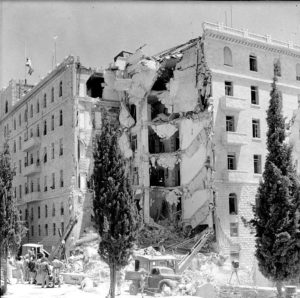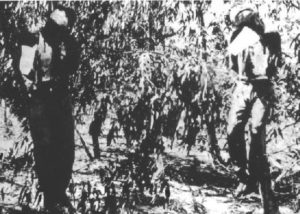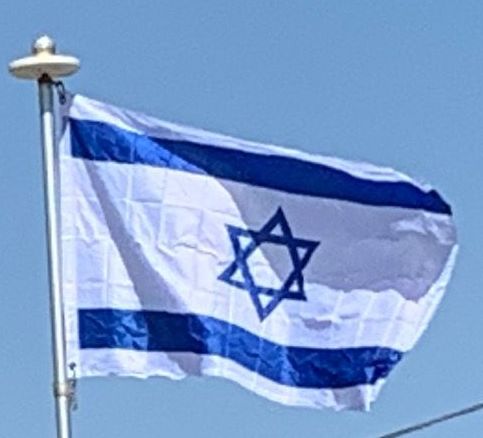
In February 1947, the British referred the Palestine issue to the newly formed United Nations. On 15 May 1947, the General Assembly of the United Nations resolved that the United Nations Special Committee on Palestine be created “to prepare for consideration at the next regular session of the Assembly a report on the question of Palestine.” In the Report of the Committee dated 3 September 1947 to the General Assembly, the majority of the Committee in Chapter VI proposed a plan to replace the British Mandate with “an independent Arab State, an independent Jewish State, and the City of Jerusalem the last to be under an International Trusteeship System.” Meanwhile, the Jewish insurgency continued and peaked in July 1947, with a series of widespread guerrilla raids culminating in the sergeants affair. After three Irgun fighters had been sentenced to death for their role in the Acre Prison break, a May 1947 Irgun raid on Acre Prison in which 27 Irgun and Lehi militants were freed, the Irgun captured two British sergeants and held them hostage, threatening to kill them if the three men were executed. When the British carried out the executions, the Irgun responded by killing the two hostages and hanged their bodies from eucalyptus trees, booby-trapping one of them with a mine which injured a British officer as he cut the body down. The hangings caused widespread outrage in Britain and were a major factor in the consensus forming in Britain that it was time to evacuate Palestine.

In September 1947, the British cabinet decided that the Mandate was no longer tenable, and to evacuate Palestine. According to Colonial Secretary Arthur Creech Jones, four major factors led to the decision to evacuate Palestine: the inflexibility of Jewish and Arab negotiators who were unwilling to compromise on their core positions over the question of a Jewish state in Palestine, the economic pressure that stationing a large garrison in Palestine to deal with the Jewish insurgency and the possibility of a wider Jewish rebellion and the possibility of an Arab rebellion put on a British economy already strained by World War II, the “deadly blow to British patience and pride” caused by the hangings of the sergeants, and the mounting criticism the government faced in failing to find a new policy for Palestine in place of the White Paper of 1939.
On 29 November 1947, the General Assembly adopted Resolution 181 (II) recommending the adoption and implementation of the Plan of Partition with Economic Union. The plan attached to the resolution was essentially that proposed by the majority of the Committee in the report of 3 September. The Jewish Agency, which was the recognized representative of the Jewish community, accepted the plan. The Arab League and Arab Higher Committee of Palestine rejected it, and indicated that they would reject any other plan of partition. On the following day, 1 December 1947, the Arab Higher Committee proclaimed a three-day strike, and riots broke out in Jerusalem. The situation spiraled into a civil war; just two weeks after the UN vote, Colonial Secretary Arthur Creech Jones announced that the British Mandate would end on 15 May 1948, at which point the British would evacuate. As Arab militias and gangs attacked Jewish areas, they were faced mainly by the Haganah, as well as the smaller Irgun and Lehi. In April 1948, the Haganah moved onto the offensive. During this period 250,000 Palestinian Arabs fled or were expelled, due to a number of factors.
